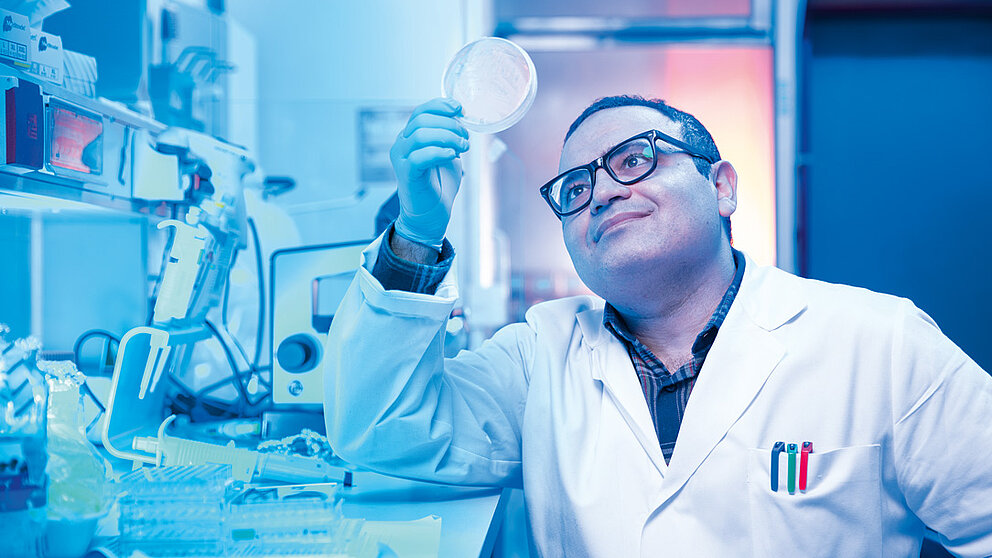Jump to the content
- {{#headlines}}
- {{title}} {{/headlines}}

MOHAMMED ELMOWAFY
The immunologist Dr Mohammed Elmowafy of Mansoura University in Egypt is currently a Humboldt Research Fellow in the Institute for Virology and Immunobiology at the University of Würzburg.
Mohammed Elmowafy, however, is working on a new counter strategy. His research focuses on bacterial infections that are followed by a fungal infection. “We have all sorts of antibiotics for bacteria, which usually work well, but if a fungus then comes along, which the patient normally catches from someone else, the list of possible countermeasures is short – because there are only very few effective antimycotics, i.e., drugs to treat fungal infections.”
Elmowafy is investigating how the bacteria interact with the fungi in this kind of co-infection and how they jointly affect the immune system. His approach is to stop the fungus with so-called monoclonal antibodies. They are grown from a specific cell line, dock onto the protein receptors on the surface of the fungus and thus deactivate their function and the fungal proliferation.
In his research, Elmowafy compares how the immune response develops with and without such treatment. “If initial successes are confirmed,” he says, “this would mean, for example, new ways of treating Covid-19 patients who catch a fungal infection in intensive care.”

